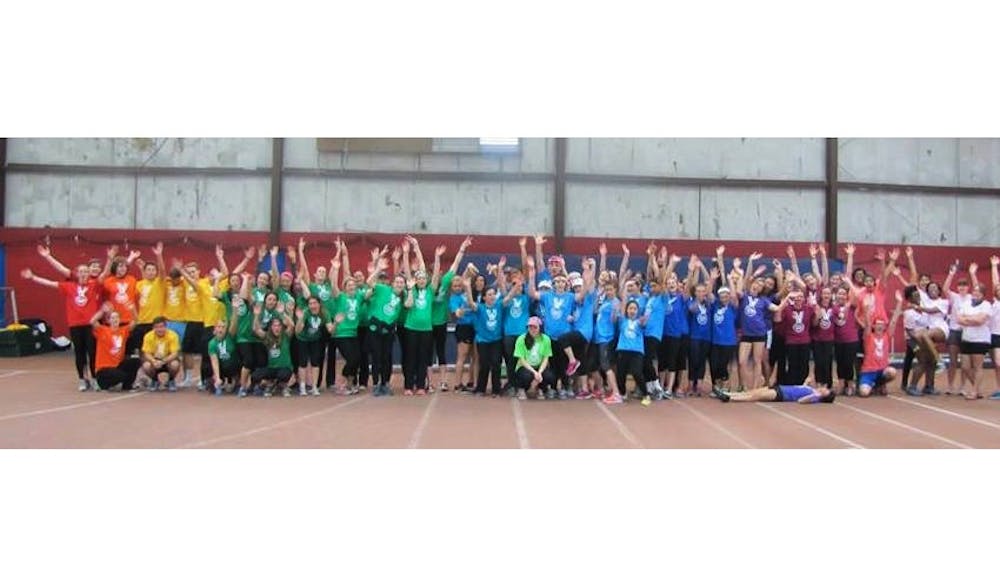Although the first gay National Football League athlete — Michael Sam — was drafted just last year, the student organization Penn Athletes and Allies Tackling Homophobia has been on campus since 2003.
PAATH is a constituent group of the Lambda Alliance, the queer advocacy umbrella organization on campus. Facilitated by the LGBT Center, PAATH’s goal is to provide a safe place for athletes and allies to talk about their sexuality and any problems that occur within their athletic communities.
As the nation’s first LGBT athlete organization, PAATH also facilitates an optional safe-zone sensitivity training for coaches. The mission of this training is to create a culture of respect in the athletic environment.
While the club is open to all students — gay or straight — the current general body and board members all identify as members of the LGBT community and are on varsity sport teams. College junior and PAATH Chair Eliana Yankelev thinks that the makeup of the group appeals to members since LGBT varsity athletes have similar experiences.
“A huge draw to PAATH is the unique intersection of our members’ identities. Being a varsity athlete at a Division I school is one thing, but to be out as LGBT and a D-one athlete is another,” Yankelev said. “That’s what brings us together.”
Yankelev’s motivation to join PAATH was not due to facing homophobia within Penn’s track and field team, but due to the alienation she faced as a high school athlete.
“High school was not the ideal place for a gay athlete,” Yankelev said. “I felt emotionally judged because I didn’t want to date guys. In track and field there is the expectation and constant pressure to hook up at our state championships.”
Despite these problems in high school, Yankelev has not experienced alienation at Penn due to her sexuality.
“All of my coaches know I’m out, and I’ve had really incredible feedback from them,” Yankelev, a 100-meter hurdles runner, said.
While Yankelev’s experience at Penn has been mostly positive, College freshman and PAATH advocacy chair Sean Collins has already heard homophobic slurs among his teammates. Still, coming from a rural community which he perceived as less-accepting of LGBT people, Collins felt empowered to come out when he came to Penn. He joined PAATH as an outlet.
“I think that, sadly, homophobia has been so ingrained in society that even the sports that are doing a good job about being inclusive still have episodes of homophobia,” Collins said.
Currently, PAATH is planning its annual Pride Games, which will be hosted March 27, the final Sunday of QPenn, a week on campus devoted to LGBT activism. The Pride Games is a day of field day events with participants including both LGBT-identifying athletes and other organizations on campus.
While Penn has not had participants from all varsity teams in years past, members of the board are currently talking to members of the Penn football team to join in the event.
Yankelev also warned that while her experiences at Penn have been positive, not all gay athletes at the University are out and not all of them are activists in the club. Still, most current PAATH members have not experienced the same backlash as founding members, who left their sports due to hostility from teammates.
“I would in no way make a generalization because there is an ignorance that has been there and will always be there,” Yankelev said.



